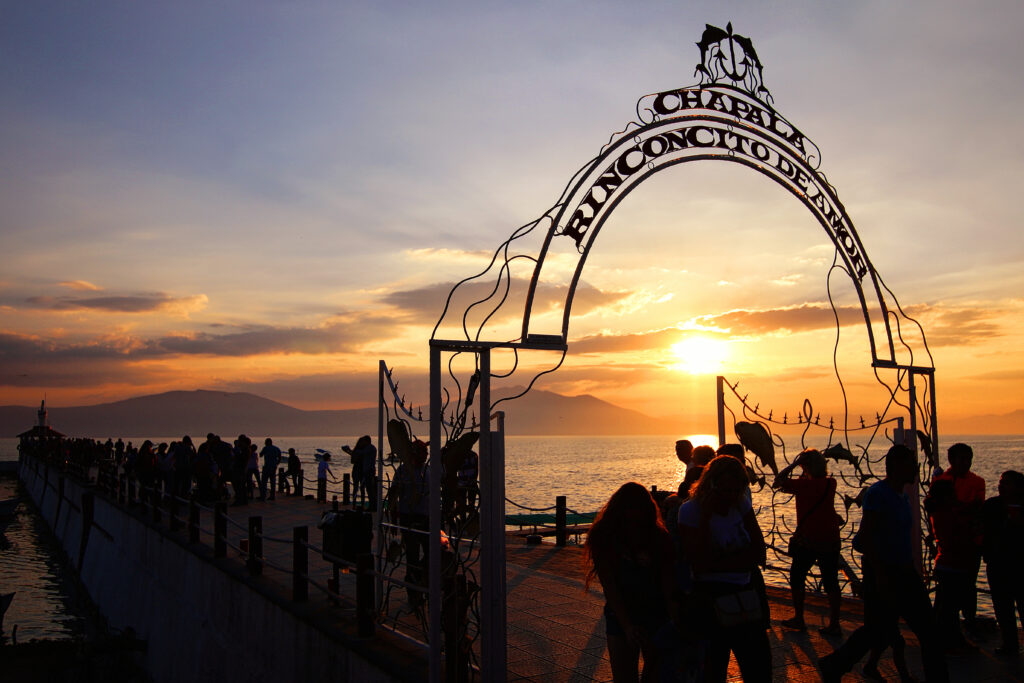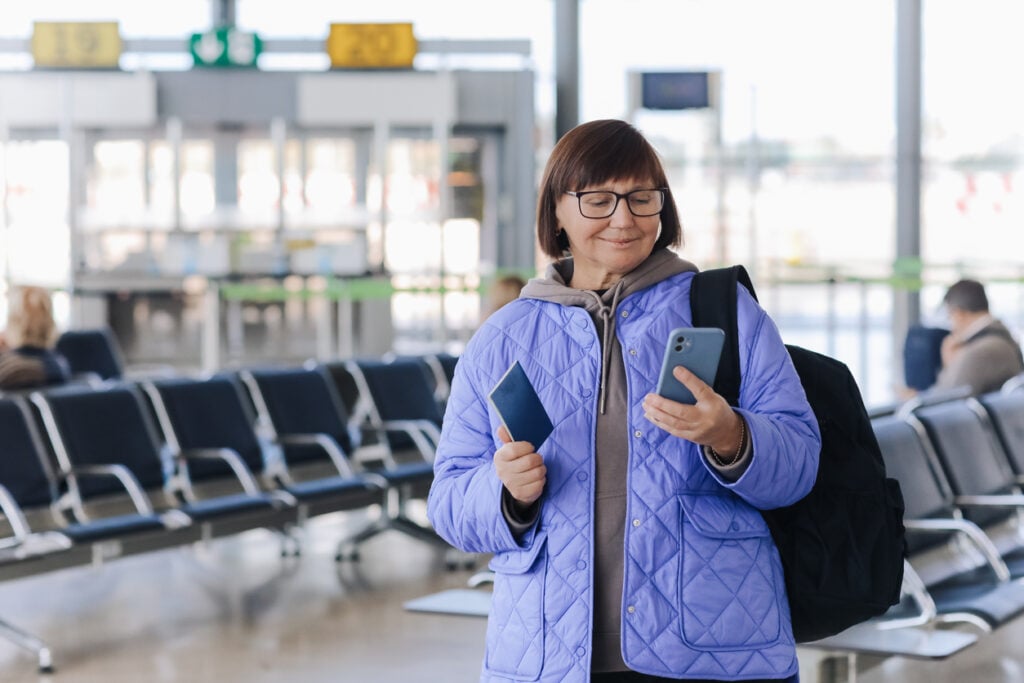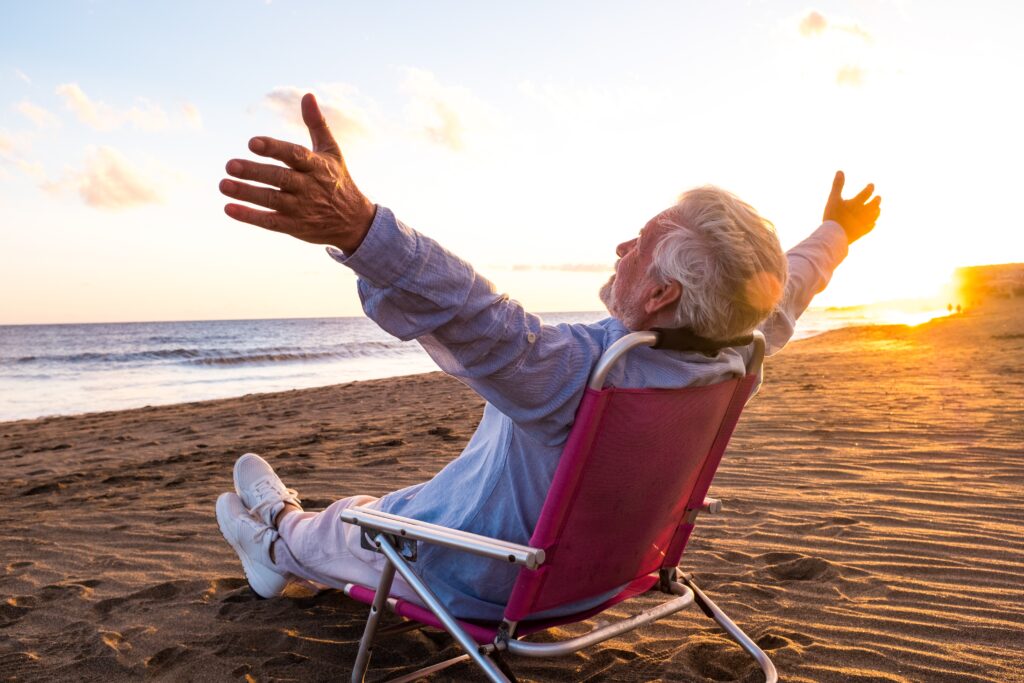Traveling alone doesn’t mean you’ll be lonely.

The idea of traveling solo once seemed daunting, perhaps even a little strange. But for our generation, it has become a powerful tool for self-discovery and empowerment. After years of coordinating family vacations and compromising on itineraries, the freedom of a journey designed entirely for oneself is not just liberating; it’s a way of reclaiming our time and our passions.
Solo travel isn’t about isolation. It’s about independence, about stepping into the world on your own terms and finding you are more capable and resilient than you ever imagined.
1. You have absolute and total freedom.

Every single decision is yours. You can wake up when you want, eat where you want, and spend three hours in a single museum exhibit without anyone rushing you. If you fall in love with a small town, you can change your plans and stay another day. This level of autonomy is a luxury rarely afforded in daily life, as mentioned by The Roaming Boomers.
This ultimate freedom allows you to travel at your own pace, following your own curiosities and whims, which makes the entire experience more personal and deeply satisfying.
2. You meet more people than you would in a group.

Traveling alone makes you more approachable. Other travelers and locals are more likely to strike up a conversation with a single person than with a couple or group that appears self-contained. You will find yourself sharing stories with strangers in cafes, getting tips from local residents, and forming fast friendships with fellow solo adventurers from around the world, according to Freebird Club.
This paradox of solo travel is that it often leads to richer social interactions, pushing you to connect with the world in a more open and authentic way.
3. You build unshakeable self-confidence.

Navigating a foreign city, deciphering a train schedule, or successfully ordering a meal in another language on your own is incredibly empowering. Every small challenge you overcome on a solo trip builds a reservoir of self-reliance and confidence, Forbes reports. You prove to yourself, time and again, that you are capable, adaptable, and resilient in the face of the unknown.
This newfound confidence doesn’t just stay with you for the trip; it comes home with you and permeates every other aspect of your life.
4. You can pursue your own niche interests.

A solo trip is your chance to be wonderfully selfish with your time. You can design an entire vacation around your specific passions, whether it’s touring historical battlefields, visiting famous gardens, attending a film festival, or exploring textile markets. There is no need to compromise or accommodate anyone else’s interests. The itinerary is 100% yours.
This allows for a deep dive into subjects you care about, making the journey not just a vacation but a true pilgrimage dedicated to your personal passions.
5. You have time for quiet self-reflection.

Without the constant chatter and distractions of a travel companion, you have ample time for your own thoughts. The quiet moments spent watching a sunset, walking through a park, or sipping coffee alone become opportunities for deep reflection. You can take stock of your life, contemplate your future, and reconnect with your inner voice.
This solitude is a gift, offering a rare chance to understand yourself better away from the roles and responsibilities that define you at home.
6. You become a better problem-solver.

When you travel alone, you are your own planner, navigator, and troubleshooter. A missed train, a lost hotel reservation, or a language barrier isn’t a catastrophe; it’s simply a problem to be solved. You learn to stay calm under pressure, think on your feet, and creatively find solutions. These skills are invaluable.
Facing and overcoming these minor hurdles sharpens your mind and proves your ability to handle whatever life throws your way, making you more resourceful in all situations.
7. You can travel more mindfully and be present.

Traveling solo heightens your senses. Without a companion to talk to, you become more observant of the world around you: the architectural details of a building, the sounds of a bustling market, the flavors of a local dish. You are more present in each moment because your full attention is directed outward at your surroundings or inward at your experience.
This mindfulness leads to a richer and more memorable travel experience, as you absorb the details of a place with greater depth and clarity.
8. You have the chance to step outside your comfort zone.

A solo trip is a voluntary and exciting leap into the unknown. It’s an opportunity to challenge yourself and do things you might not do with a partner looking on. You might try a new food, strike up a conversation with a stranger, or attempt an activity like hiking or kayaking. It’s a safe space for personal growth.
Each time you push your own boundaries, you expand your world and your perception of what you are capable of, which is a key ingredient to staying vibrant.
9. You can control your budget without compromise.

When you travel alone, you have complete control over your finances. You can choose to splurge on a fancy dinner one night and eat a simple meal from a local market the next. You can stay in a budget-friendly guesthouse or a luxurious hotel, depending on your priorities. There are no arguments or negotiations about spending.
This financial autonomy removes a common source of travel stress and allows you to allocate your resources toward the experiences that matter most to you.
10. You will feel truly empowered upon your return.

Completing a successful solo trip provides an unparalleled sense of accomplishment. You chose a destination, planned the logistics, navigated the challenges, and had an amazing time, all on your own. This achievement is a powerful reminder of your independence and strength. It’s a story you will tell with pride for years to come.
This feeling of empowerment is perhaps the greatest souvenir you can bring home, serving as a lasting testament to your adventurous and capable spirit.
11. You learn the difference between being alone and being lonely.

One of the most profound lessons of solo travel is discovering that being alone is a state of being, while being lonely is a state of mind. You learn to enjoy your own company, finding contentment in solitude. You realize that you can be surrounded by people in a group and feel lonely, or be completely alone and feel perfectly happy and engaged.
This understanding is a crucial life skill that enhances your relationship with yourself and allows you to find peace and fulfillment whether you are with others or not.
